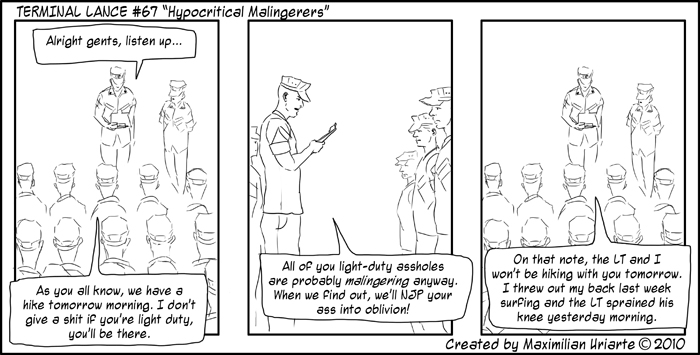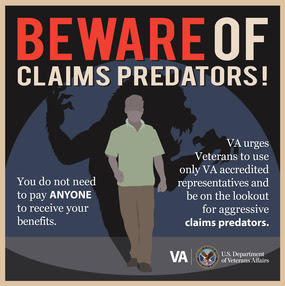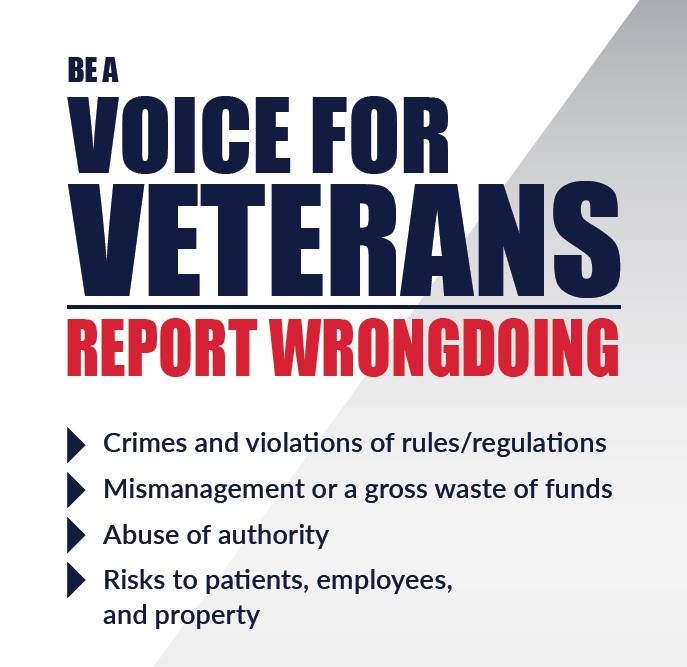- Home
- Psychologist & Psychiatrist C&P Examiners
- Recommended Reading
Recommended Reading for C&P Psychologists
Recommended Reading for C&P Psychologists ← Click or tap that link to download this reading list (PDF).
July 6, 2024 – Recommended reading for C&P psychologists is a list of the most important journal articles and other reliable sources to help new and experienced examiners achieve or maintain competence conducting these often complex forensic mental health evaluations.
The U.S. Department of Veterans Affairs (VA) requires compensation and pension examinations (C&P exams) for almost all veterans seeking disability benefits for mental disorders. Only licensed doctoral-level clinical or counseling psychologists and board-certified psychiatrists, or their interns and residents under close supervision, may conduct psychological C&P exams.
On this page ...
- Recommended Reading for C&P Psychologists: Introduction
- How to Find Journal Articles
- Notes
- Conducting Exams
- Ethics & Professional Guidelines
- Specialized Exams & Issues
- C&P Exam-specific Reviews & Research
- Legal Parameters
- Foundational Knowledge in Forensic Psychology
- Evidence-Based Assessment
- Public Policy Issues
- Helpful Resources
- Footnotes
Recommended Reading for C&P Psychologists: Introduction
- Recommendations are below, grouped by general topics.1
- My comments are in italics.
- If you are a new examiner, I suggest starting with the highlighted Top 10 recommendations.
- Although substantially influenced by discussions with other examiners over the years, particularly on the Psych C&P Exams listserv, please understand that these are my recommendations. I encourage you to also solicit recommendations from other experienced C&P psychologists.
- This list of recommended reading for C&P psychologists assumes that you have already completed the mandatory VA training videos, i.e., this recommended reading list does not substitute for that essential VA training.
- Except for the VA C&P examiner training videos (listed below), the articles and other resources are not VA recommendations. VA probably agrees with some of them, e.g., using the National Center for PTSD as an excellent resource, but the agency has neither endorsed nor objected to the recommendations contained herein.
How to Find Journal Articles
Whenever possible I link to the articles on this list of recommended reading for C&P psychologists. Unfortunately, not all articles are publically available. But with some effort, you can locate almost all of these articles.
- For recent journal articles, request a copy from the corresponding author.
- Search for the title of the article on Google Scholar – look to the right side of the search results page for links to PDF copies of the article.
- Tip: Click on "All n versions", where n is a numeral indicating the number of versions of the article available online. You can often find different PDF (or HTML) versions of an article in this manner.
- If a reference has a PMC citation, e.g., "PMC2867495", that means a full-text version of the article is available on PubMed Central.
- See John Mark Ockerbloom, "Why Pay For What’s Free? Finding Open Access And Public Domain Articles," Everybody's Libraries (23 Oct 2018), https://perma.cc/K4PP-UE6F
- Install the Unpaywall.org extension to immediately identify articles with a free version (often a preprint or author’s copy).
Notes
- Note_1: If an article is available online, I link to it.
- Note_2: Thank you to the many Psych C&P Exams listserv members for their recommendations for this list recently, and over the past several years. :0)
- Note_3: My Top 10 recommendations, especially for new examiners, are highlighted.
Articles About Conducting Exams
Marjorie Auer et al., C&P Service Clinician's Guide, ver. 3.0 (Lewis R. Coulson ed., 2002).
- Although it was written over 20 years ago, it remains one of the best overviews – with more details on important topics than the video trainings.
Moering, R. G. (2011). Military service records: searching for the truth. Psychological Injury and Law, 4(3-4), 217-234.
- Written by a USMC veteran and psychologist. A must read to understand military medical and personnel records.
Worthen, M. D. & Moering, R. G. (2011). A practical guide to conducting VA compensation and pension exams for PTSD and other mental disorders. Psychological Injury and Law, 4(3-4), 187-216, https://perma.cc/VBX2-SPTW.
In addition to those publications, I would be remiss if I did not include the VA Online Training Videos for C&P Examiners. VA requires this training before you can conduct C&P exams, whether as a VA employee or as a contract examiner. But, even if you already completed this training, the videos remain a good resource, particularly about more difficult exams, e.g., aggravation claims. The required courses are:
- DMA General Certification Overview
- DMA Medical Opinions – Update 2022
- DMA: Gulf War Medical Examination - Update 2022
- DMA: Mental Health Examinations
- DMA: Military Sexual Trauma and the Disability Examination Process - Update 2022
– Non-VA psychologists and psychiatrists can take the courses, at no charge, via VHA TRAIN. You will receive CE or CME credits too.
Ethics & Professional Guidelines
American Psychological Association (2017). Ethical Principles of Psychologists and Code of Conduct.2
- You might think this recommendation is unnecessary “because all psychologists know they have to follow the ethics code.” Unfortunately, many psychologists have a blind spot when it comes to VA disability evaluations (C&P exams). Pay particular attention to 2.04 Bases for Scientific and Professional Judgments and 9.01 Bases for Assessments.
American Psychological Association (2021). Guidelines for Psychological Practice With Military Service Members, Veterans, and Their Families.
American Psychological Association (2013). Specialty guidelines for forensic psychology. American Psychologist, 68(1), 7–19.3 In particular:
- 1.01: Integrity
- 1.02: Impartiality and Fairness
- 2.01: Scope of Competence
- 2.05: Knowledge of the Scientific Foundation for Opinions and Testimony
- 2.07: Considering the Impact of Personal Beliefs and Experience
- 2.08: Appreciation of Individual and Group Differences
- 9.01: Use of Appropriate Methods
- 9.02: Use of Multiple Sources of Information
Ohio Board of Psychology (2018). Work Disability Examinations: Forensic Psychology Competence and Resources. Quote from document: "Psychologists undertaking practice on work disability matters are expected to have a working knowledge of the foundational competencies in forensic psychology and their application to work disability cases."
- I have heard a few psychologists dismiss this board advisory as irrelevant “because I am not licensed in Ohio.” If that is you, I encourage you to ask yourself: “How would my state’s psychology licensing board view this issue?”
Russo, A. C. (2013). Ethical, legal and risk management considerations in the neuropsychological assessment of veterans. Psychological Injury and Law, 6(1), 21–30.
- Dr. Russo’s analysis describes the ethical challenges facing C&P examiners better than any other source. The arena has shifted from VA medical centers to MDE (medical disability examination) companies and contract examiners, but the pressure to give lip service to ethical principles and ignore professional standards continues.
Specialized Exams & Issues
American Bar Association (Commission on Law & Aging) and American Psychological Association - ABA/APA Assessment of Capacity in Older Adults.
Garbelman, J. L. (2017). Conducting veteran dependency and indemnity compensation exams: Establishing a nexus between mental health and death. Psychological Injury and Law, 10(2), 161-176. doi:10.1007/s12207-017-9284-8
Garbelman, J. (2017). The insanity exemption to other than honorable discharge for the purpose of claiming benefits: the role of the mental health examiner. Psychological Injury and Law, 10(2), 177-190.
Caron, J. E. (2017). The veteran’s disability examination: considerations for neuropsychologists. In S.S. Bush, G. Demakis, & M. Rohling (Eds.) APA Handbook of forensic neuropsychology. American Psychological Association.
Caron, J. E., & Floyd, M. R. (2018). Compensation and pension examinations with older veterans. In S.S. Bush & A.L. Heck (Eds.) Forensic geropsychology: practice essentials. American Psychological Association.
Page K, Farrell TW, Mills WL, Catlin C, Dumas P, Morrow A, Cooper V, Guzman J, McConnell E, Moye J. (2018). Capacity 101 Handout (VHA EES Assessment of decision making capacity handout series). Veterans Health Administration (VHA) Employee Education System.
C&P Exam-specific Reviews & Research
Franklin, C., Repasky, S., Thompson, K., Shelton, S., & Uddo, M. (2002). Differentiating overreporting and extreme distress: MMPI-2 use with compensation-seeking veterans with PTSD. Journal of Personality Assessment, 79(2), 274-285.
Jankowski, R. L., Black, A. C., Lazar, C. M., Brummett, B. R., & Rosen, M. I. (2019). Consideration of substance use in compensation and pension examinations of veterans filing PTSD claims. PLOS ONE, 14(2), e0210938.
Johansen, T. (2017). Core competencies in VA compensation and pension exams for PTSD and other mental disorders. Psychological Injury & Law, 10(3), 234-243.
Marx, B. P., Bovin, M. J., Szafranski, D. D., Engel-Rebitzer, E., Gallagher, M. W., Holowka, D. W., … Keane, T. M. (2016). Validity of posttraumatic stress disorder service connection status in Veterans Affairs electronic records of Iraq and Afghanistan veterans. Journal of Clinical Psychiatry, 77(4), 517–522.
Marx, B. P., Engel-Rebitzer, E., Bovin, M. J., Parker-Guilbert, K. S., Moshier, S., Barretto, K., & Keane, T. M. (2017). The influence of veteran race and psychometric testing on Veterans Affairs posttraumatic stress disorder (PTSD) disability exam outcomes. Psychological Assessment, 29(6), 710-719, https://perma.cc/Q9NF-FLCV.
- Psychometric testing helps to reduce—or even eliminate—examiners’ unconscious racial bias (implicit bias).
National Academies of Sciences, Engineering, and Medicine (2019). Evaluation of the disability determination process for traumatic brain injury in veterans. National Academies Press. – Although specific to TBI exams, most of the distinguished panel’s recommendations apply to psychological C&P exams.
Orme, D. R. (2012). Diagnosing PTSD: lessons from neuropsychology. Military Psychology, 24(4), 397–413.
Ray, Christopher L. (2017). Practical use of MMPI-2-RF validity indicators in VA compensation and pension examinations. Psychological Injury and Law, 10(3), 223–233.
Speroff, T., et al. (2012). Impact of evidence-based standardized assessment on the disability clinical interview for diagnosis of service-connected PTSD: A cluster-randomized trial. Journal of Traumatic Stress, 25(6), 607-615. – Evidence-based assessment leads to more reliable and accurate exams.
Wolf, E. J., Ellickson-Larew, S., Guetta, R. E., Escarfulleri, S., Ryabchenko, K., & Miller, M. W. (2020). Psychometric performance of the Miller Forensic Assessment of Symptoms Test (M-FAST) in veteran PTSD assessment. Psychological Injury and Law, 13, 284-302.
- Demonstrates the potential for reaching false positive conclusions if you rely on an SVT’s manual alone (to determine cut scores) and if you do not keep up with the research literature. The same caution applies to the SIMS.
Legal Parameters
Coyle, S., Ishizawar, A., & Seesel, H. (2012). The medical examiner as factfinder: the effect of the lay evidence doctrine on VA's duty to assist in securing medical nexus opinions. Veterans Law Review, 4, 131–161. https://perma.cc/VEM8-ATTY
Francway v. Wilkie, 940 F.3d 1304 (Fed. Cir. 2019) (en banc). [See also Key Points for Psych C&P Examiners.]
Jones v. Shinseki, 23 Vet. App. 382 (2010).
Nieves-Rodriguez v. Peake, 22 Vet. App. 295 (2008).
Nohr v. McDonald, 27 Vet. App. 124 (2015).
Ridgway, J. D. (2012). Mind reading and the art of drafting medical opinions in veterans benefits claims. Psychological Injury and Law, 5(1), 72-87.
Vazquez-Claudio v. Shinseki, 713 F.3d 112, 117 (2013).
→ See also Unique Legal Parameters - A chart that delineates differences between the legal parameters governing typical forensic mental health evaluations versus VA C&P psychological exams.
Foundational Knowledge in Forensic Psychology
Anfang, S. A., Gold, L. H., & Meyer, D. J. (2018). AAPL practice resource for the forensic evaluation of psychiatric disability [Supplement]. Journal of the American Academy of Psychiatry and the Law, 46(1), S1—S47.
Greenberg, S.A. & Shuman, D.W. Irreconcilable conflict between therapeutic and forensic roles. Professional Psychology: Research and Practice, 28(1), 50–57. https://perma.cc/LW9T-XHGQ
Hall, R. C. W. & Hall, R. C. W. (2012). Compensation neurosis: A too quickly forgotten concept? The Journal of the American Academy of Psychiatry and the Law, 40(3), 390-398.
Melton, G. B., Petrila, J., Poythress, N. G., Slobogin, C., Otto, R. K., Mossman, D., & Condie, L. O. (2018). Psychological evaluations for the courts: A handbook for mental health professionals and lawyers. 4th ed. Guilford Press.
Milchman, Madelyn Simring (2011). The roles of scientific and clinical epistemologies in forensic mental health assessments. Psychological Injury and Law, 4(2), 127–139.
Neal, T. M. S., Lienert, P., Denne, E., & Singh, J. P. (2022). A general model of cognitive bias in human judgment and systematic review specific to forensic mental health. Law and Human Behavior, 46(2), 99–120.
Strasburger, Larry H., Thomas G. Gutheil, and Archie Brodsky. "On Wearing Two Hats: Role Conflict in Serving as Both Psychotherapist and Expert Witness." American Journal of Psychiatry 154, no. 4 (1997): 448–456, https://perma.cc/87ET-MXV5.
Varela, J. G., & Conroy, M. A. (2012). Professional competencies in forensic psychology. Professional Psychology: Research and Practice, 43(5), 410-421.
Evidence-Based Assessment
Bornstein, R. F. (2016). Evidence-based psychological assessment. Journal of Personality Assessment 99(4), 435-445.
Institute of Medicine, Committee on Psychological Testing (2015). Psychological testing in the service of disability determination. National Academies Press.
- Specific to Social Security consultive exams, but most of the expert group’s recommendations apply to C&P exams.
Russo, A. C. (2014). Assessing veteran symptom validity. Psychological Injury and Law, 7(2), 178-190.
Young, G. (2015). Malingering in forensic disability-related assessments: Prevalence 15±15%. Psychological injury and law, 8(3), 188-199.
Public Policy Issues
Gianoli, M. O., Meisler, A. W., & Rosen, M. I. (2023). Proposed changes to the Department of Veterans Affairs disability rating rubric for mental disorders. Psychiatric Services, 74(6), 628-635.
Gianoli, M. O., & Meisler, A. W. (2022). PTSD disability examinations in the Department of Veterans Affairs: A comparison of telehealth and in-person exams. Professional Psychology: Research and Practice, 53(6), 626.
Meisler, A. W., & Gianoli, M. O. (2022). The Department of Veterans Affairs disability examination program for PTSD: Critical analysis and strategies for remediation. Psychology, Public Policy, and Law, 28(4), 479–490.
Meisler, A. W., & Gianoli, M. O. (2022). PTSD Disability Examination Reports: a comparison of Veterans Health Administration and contract examiners. Federal Practitioner, 39(2), 70.
Veterans Benefits for PTSD in the United States (Wikipedia). – A Wikipedia good article that provides a succinct overview of VA disability benefits for PTSD (and other mental disorders).4
Young, G. (2015). Towards balanced VA and SSA policies in psychological injury disability assessment. Psychological Injury and Law, 8(3), 200-218.
Helpful Resources
Center for Minority Veterans (CMV) – I highly recommend reviewing the extensive resources on this VA group’s website and subscribing to their very informative newsletter (on their website, right-side navigation menu).
- “We acknowledge the diversity of our veterans and profoundly value the strength and unique character this diversity has contributed to our great Nation.”
Psych C&P Exams Email Discussion List (listserv) – Email discussion list for psychologists, psychiatrists, and other professionals interested in VA C&P exams for PTSD and other mental disorders.
National Center for PTSD - see the For Providers section (left-side navigation column).
- Take advantage of the excellent PTSD Consultation Program.
- Take APA-accredited Continuing Education
- Download assessment instruments.
VA Disability Alliance for Legal & Clinical Professionals – Private LinkedIn group: The goal of the group is to bridge the information gap between veterans law attorneys and VA-accredited claims examiners, VBA staff (raters, decision review officers), C&P examiners (physicians, APRNs, audiologists, psychologists), independent, fee-based examiners; and treating clinicians to enhance our ability to provide exceptional service to our patients, clients, and adjudicators.
Footnotes
1. Thank you to Dr. Bruce Borkosky for suggesting this format.
2. I understand that not all jurisdictions incorporate the APA Ethics Code into their laws governing the practice of psychology. However, most of those jurisdictions mandate ethical standards very similar to the APA ethics code.
3. These guidelines are aspirational, which means we should aspire to conduct exams consistent with them, not ignore them. (I apologize for the stern tone, but I hear psychologists dismissing these guidelines as irrelevant to C&P exams.)
4. Only 0.6% of Wikipedia articles have achieved good article status.
→ Download Recommended Reading for C&P Psychologists (PDF).
 Books through a keyhole - photograph by WeLoveSmick (2007)
Books through a keyhole - photograph by WeLoveSmick (2007)- Home ›
- Psych Examiners ›
- Reading List
Subscribe to receive new articles and other updates
What Do You Think?
I value your feedback!
If you would like to comment, ask questions, or offer suggestions about this page, please feel free to do so. Of course, keep it clean and courteous.
You can leave an anonymous comment if you wish—just type a pseudonym in the "Name" field.
If you want to receive an email when someone replies to your comment, click the Google Sign-in icon on the lower right of the comment box to use Google Sign-in. (Your email remains private.)
↓ Please comment below! ↓





